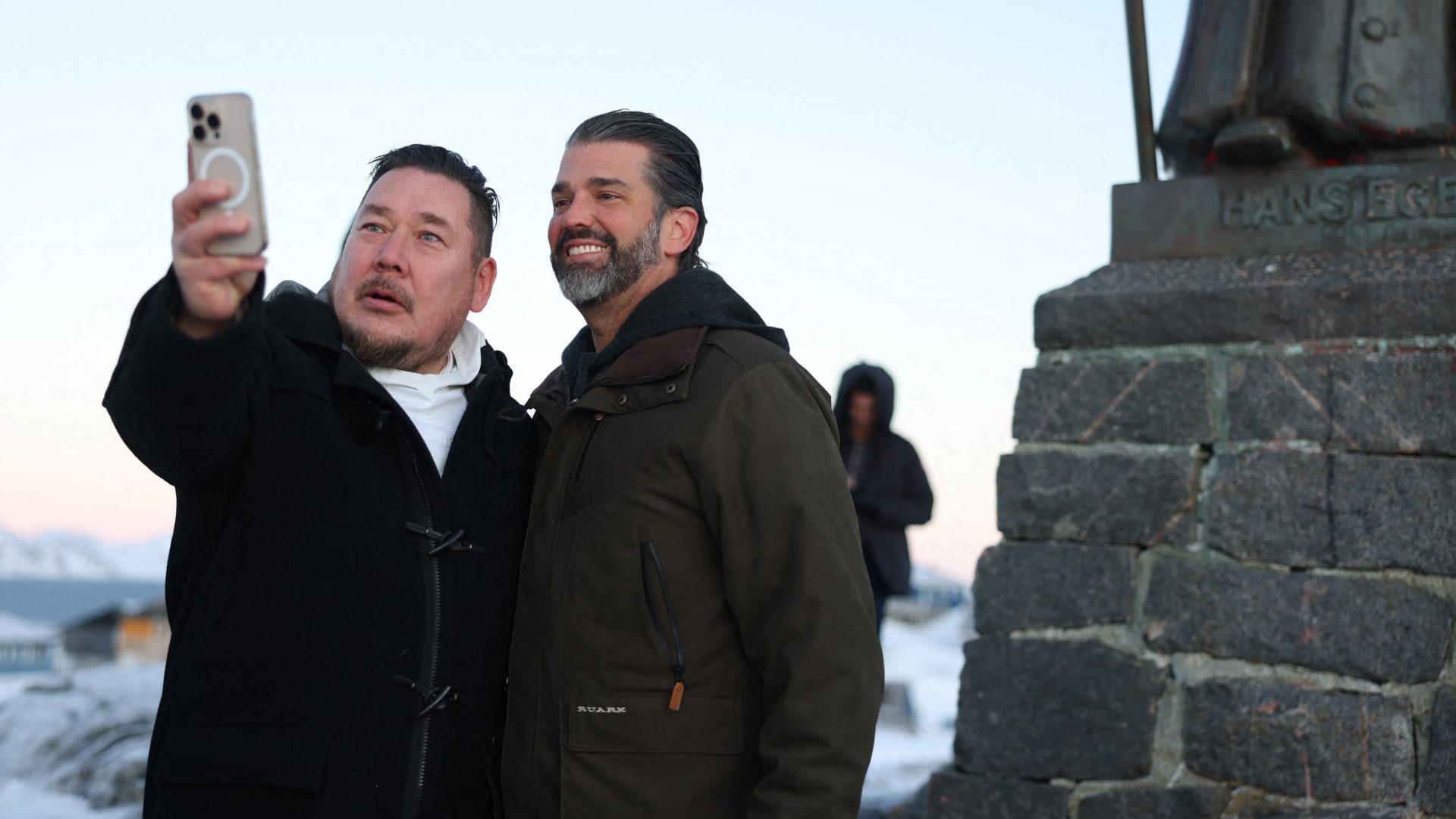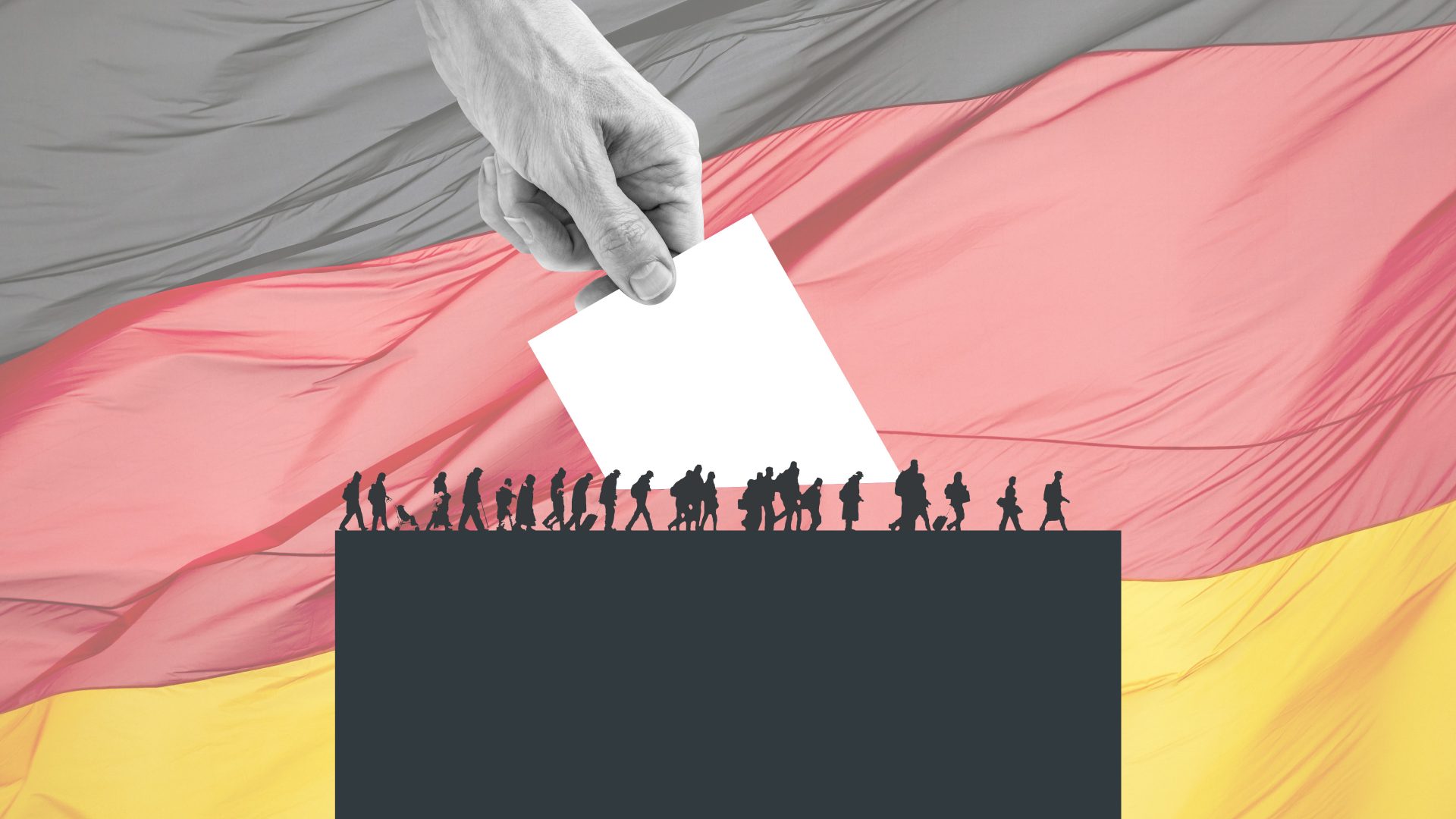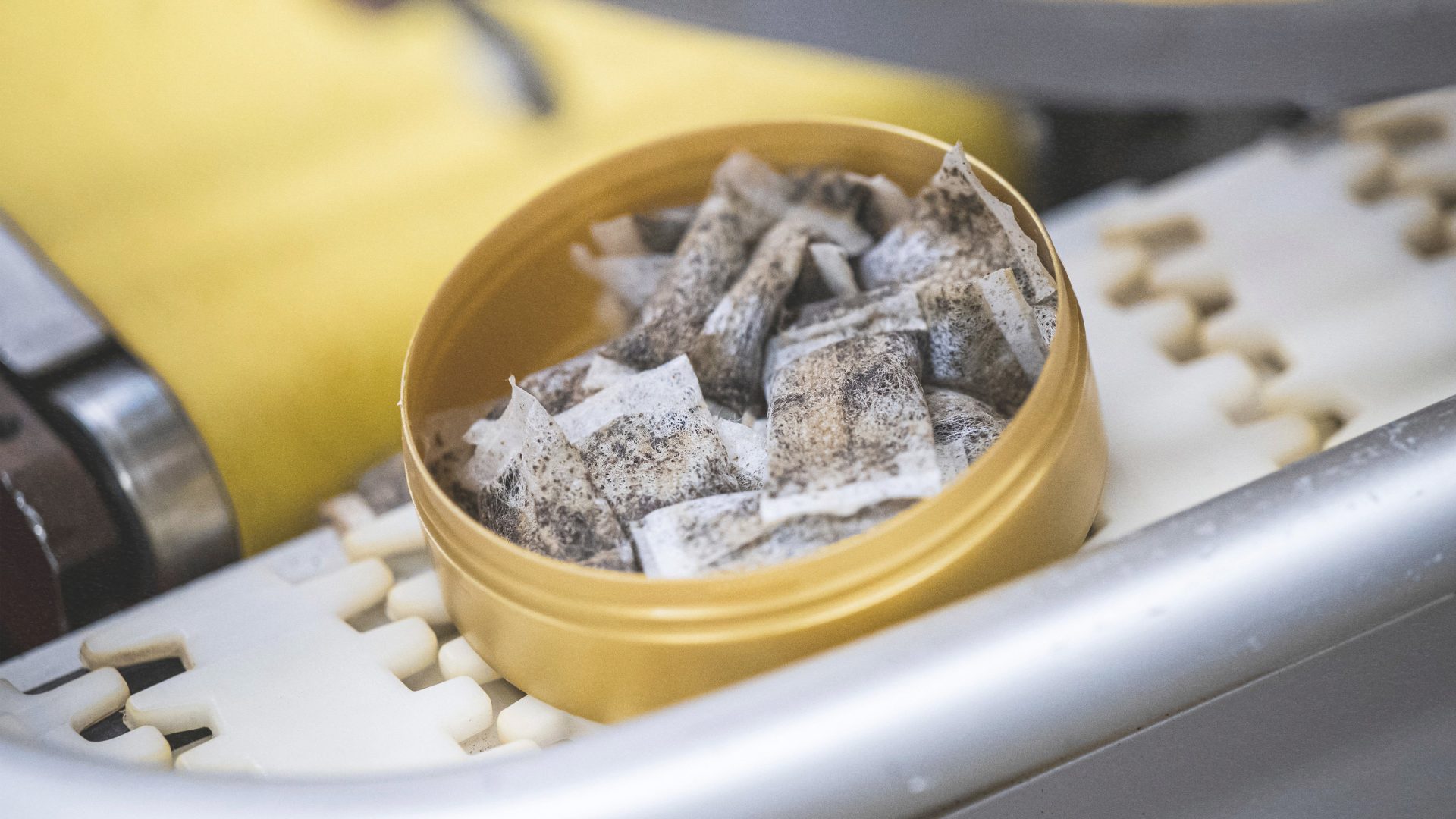I was born and raised in Ilulissat, in Greenland, a place where two cultures coexist. My mother is Greenlandic, and my father is Danish, giving me a unique perspective on events that affect both nations. And now we have another culture to contend with – the US. When Donald Trump suggested buying Greenland, the reaction among Greenlanders ranged from laughter to genuine concern.
On Facebook, where most Greenlanders communicate and share news, the idea was met with disbelief, and ridicule. Memes and jokes spread quickly – but beneath the laughter there was fear and confusion. What did it mean that the president of the United States was openly discussing the purchase of our home?
Normally, life here in Greenland is quiet and relatively uneventful. Major news is rare, and developments, like the recent opening of an international airport in Nuuk, are a very big thing for us.
This new airport is part of Greenland’s efforts to connect more with the outside world. Seeing a plane land there and Donald Trump Junior emerge from inside was an extraordinary event. Naturally, many people went to see this, driven by curiosity rather than political support. Yet, what made this event even more peculiar was the distribution of bright red MAGA caps to everyone Trump jnr’s entourage encountered.
In a place where imported goods from America are expensive and often scarce, the sudden availability of these caps was a real novelty and the sight of people wearing MAGA caps in Nuuk was surreal. But those caps became a temporary spectacle, not a symbol of allegiance.
Greenland is less interested in becoming part of the US than it is with gaining full independence from Denmark. We gained self-rule in 2009, and the idea of Greenland as a fully independent nation is one that resonates deeply with many Greenlanders. That journey toward independence has been a slow process, and it is likely to take many more years – but Trump’s interest in our country has had the effect of highlighting Greenland’s ongoing journey toward independence.
But though this is a land of only 56,000 people, each of us has our own story, and each town develops at its own pace. Nuuk, the capital, is relatively modern, with cafes, cinemas, shopping centres, and educational institutions. However, outside Nuuk, life can feel very different.
Smaller towns lack the infrastructure found in the capital. Roads can be damaged by the thawing permafrost, and some towns don’t even have modern sewage systems. This contrast between urban and rural life in Greenland is one of the reasons we have not yet coalesced around a vision of what an independent Greenland might be.
Another big question is what to do about the large mining companies. Many Greenlanders feel they are exploiting our resources with little benefit to the people who live here. Even with strict regulations that make mining difficult and often unprofitable, there is a lingering sense that we are being had. This contributes to growing divisions within our society, as some people feel increasingly disenfranchised.
So Trump has entered a political situation that is perhaps more complex than he realised. Unfortunately, some media outlets treated his proposal as a joke, while others sensationalized the situation.
But this is not a game or a spectacle – it’s about the fate of a nation whose path towards independence is still unfolding. Greenland is not just a remote island; it is home to people with their own culture, history, and aspirations, and there are serious conversations about Greenland’s future that need to happen.
As someone who has lived between Greenland and Denmark, I’ve experienced firsthand the stereotypes and racism that Greenlanders often face. When I started university in Denmark, I was the only Greenlander in my class. People assumed that another student, who was Asian, was from Greenland, until I clarified it was me. Comments like “You don’t look like a Greenlander” are hurtful reminders of the misconceptions we still battle today.
Despite these challenges, I believe it’s crucial to maintain a strong relationship between Greenland and Denmark. Trump’s proposal served as a wake-up call, reminding us that perhaps Denmark has taken Greenland for granted over the years. It’s time for Denmark to re-engage with Greenland in a meaningful and respectful way, acknowledging our aspirations and supporting us on our journey toward independence.
Greenland is a land of incredible beauty and resilience. Our people are deeply connected to the land, and our culture is rich and unique. As we move forward, I hope the world will see Greenland not just as a remote island, but as a nation with its own distinct identity and future.



